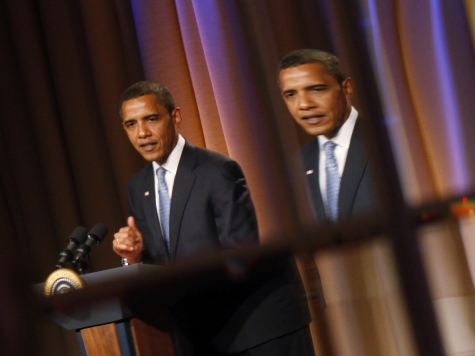
A “Dear Colleague” letter signed by then-Senator Barack Obama (D-IL) in 2005 urged an end to “government fishing expeditions” under Section 215 of the Patriot Act to gather records on American citizens indiscriminately. The letter was also signed by eight other Senators, including John Kerry (D-MA) and Chuck Hagel (R-ND), who currently serve in President Obama’s Cabinet as Secretary of State and Secretary of Defense, respectively.
The letter is provided below.
The December 14, 2005 letter was passed around in the Senate to gather support for specific changes to the Patriot Act. Sen. Obama was particularly concerned about sections 215 and 505, which give the government two legal means to collect extensive business records (the FISA court and national security letters, respectively). Sen. Obama’s “Dear Colleague” letter argues that the requirements for making these requests need to be tightened:
The conference report would allow the government to obtain library, medical and gun records and other sensitive personal information under Section 215 of the Patriot Act on a mere showing that those records are relevant to an authorized intelligence investigation. As business groups like the U.S. Chamber of Commerce have argued, this would allow government fishing expeditions targeting innocent Americans. We believe the government should be required to convince a judge that the records they are seeking have some connection to a suspected terrorist or spy, as the three-part standard in the Senate bill would mandate.
The letter goes on to argue that a stricter standard “will protect innocent Americans from unnecessary surveillance and ensure that government scrutiny is based on individualized suspicion, a fundamental principle of our legal system.”
That focus on individualized suspicion was echoed in a public statement Sen. Obama made on the Senate floor one day after the letter was issued. He said it was time “to show the American people that the federal government will only issuewarrants and execute searches because it needs to, not because it can.”
Later in his speech, he added:
If someone wants to know why their own government has decided to goon a fishing expedition through every personal record or privatedocument – through library books they’ve read and phone calls they’vemade – this legislation gives people no rights to appeal the need forsuch a search in a court of law. No judge will hear their plea, no jurywill hear their case. This is just plain wrong.
Though that seems to have been directed at the use of national security letters, the principles would seem to apply to the collection of data and records under section 215. As reports last week indicated, the NSA has been collecting everything to which it has access and maintaining a gag order on companies that turn over the data.
The Chamber of Commerce letter which prompted some of Sen. Obama’s concerns was sent to Senator Arlen Specter (R-PA) two months earlier on October 4, 2005. It made clear that business groups are concerned about the use of section 215, in part, because of the potential expense of complying with expansive demands for records.
Section 215 of the Act currently allows the Justice Department to obtain secret orders for business records and other tangible items from the Foreign Intelligence Surveillance Court. We support the revision in the Senate bill that requires a statement of fact and some linkage between the records sought and an individual suspected of being a terrorist or spy. As written, the government merely has to certify that the records sought are relevant to an authorized investigation, without stating any underlying facts for the court or judge or showing any nexus with an actual suspect of investigation. As a result, the current Act does not impose any limit on the breadth of records sought, or protect records that are privileged or proprietary. Without such facts, let alone any probable cause of wrongdoing, an unreasonable burden and expense is imposed on businesses to supply potentially large quantities of information that are difficult to collect and transmit, including trade secrets or other sensitive information.
The Chamber and other business groups were worried about the cost of replying to these broad demands for data, but Sen. Obama’s letter and speech do not mention costs. His specific concerns were the legality and morality of collecting data on Americans who are not suspected of a crime and who will not be made aware that their data has been collected. Those concerns continued through the 2007 campaign, when presidential candidate Obama gave a major speech in which he called for an end to some of these same practices.
The information leaked last week to the UK Guardian seems to indicate that the President had a change of heart. It’s not clear how the broad dragnet of phone metadata or the PRISM collection of email and other data is compatible with Obama’s previously expressed concerns about “government fishing expeditions.”

COMMENTS
Please let us know if you're having issues with commenting.